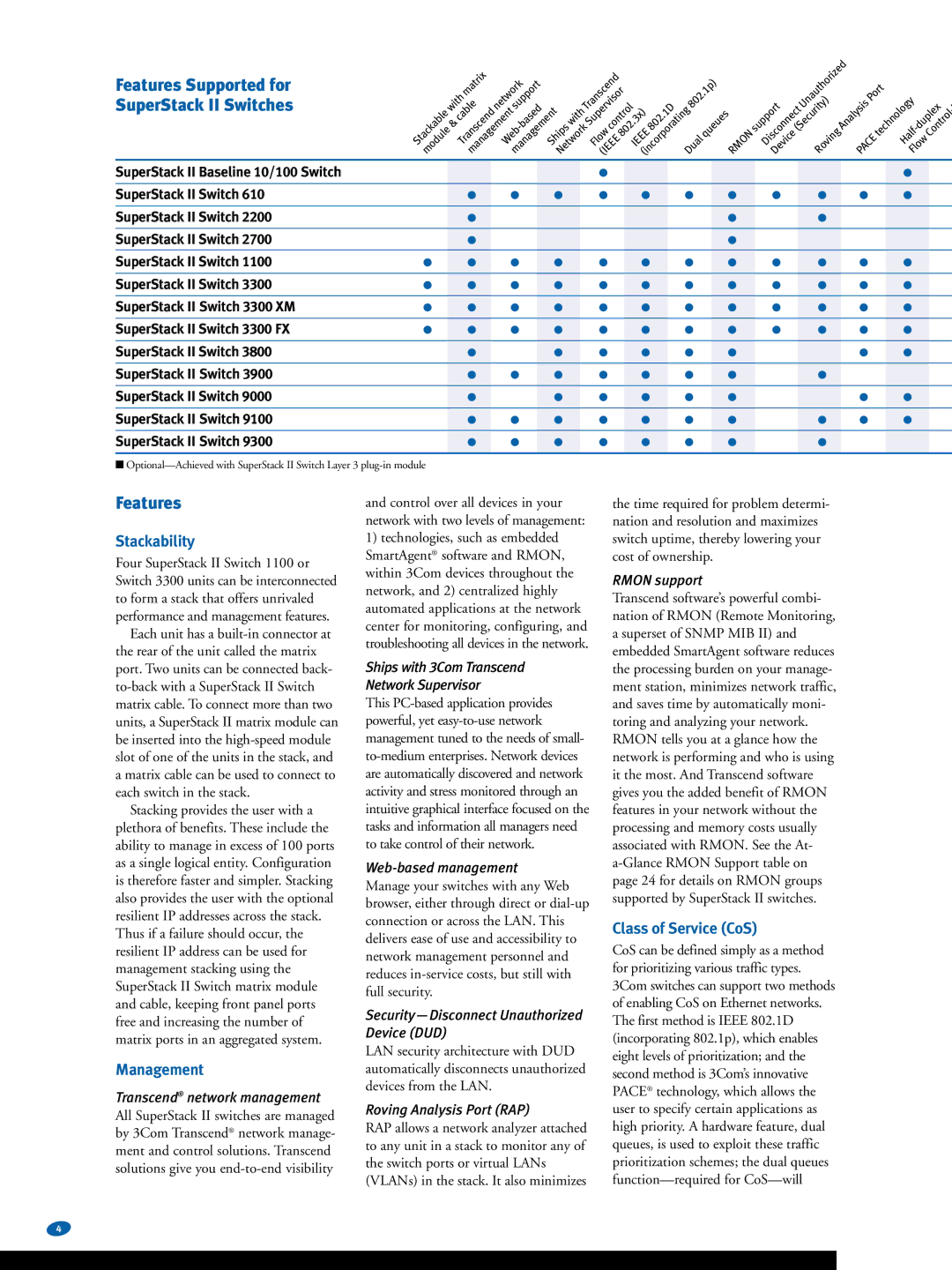Switches specifications
3Com switches have long been a significant player in the networking landscape, known for their reliable performance and robust features tailored for both small and medium-sized businesses as well as enterprise environments. Over the years, 3Com has developed a range of switches that cater to various networking needs, supporting a diverse array of applications. As part of HP's networking product line since their acquisition, 3Com switches have integrated advanced technologies and offered a variety of characteristics that enhance network performance and collaboration.One of the main features of 3Com switches is their high-performance switching capabilities. Many 3Com models provide Gigabit Ethernet connectivity, allowing for rapid data transfers and reducing latency in network communications. This is particularly beneficial for businesses that rely on real-time data processing and high-bandwidth applications, such as video conferencing and large file transfers.
Another noteworthy characteristic of 3Com switches is their intelligent management features. They often come equipped with a web-based interface that allows for streamlined configuration and monitoring of network traffic. This enables IT administrators to manage their networks efficiently, deploying updates and troubleshooting issues with ease. Further enhancing network manageability, many 3Com switches support SNMP (Simple Network Management Protocol), enabling centralized management of multiple devices across a network.
Furthermore, 3Com switches incorporate Power over Ethernet (PoE) technology, allowing them to deliver power along with data through standard Ethernet cables. This is particularly advantageous for powering devices such as IP cameras, VoIP phones, and wireless access points without the need for additional power sources, simplifying deployment and reducing clutter.
Scalability is another defining feature of 3Com switches. Many models are designed to facilitate easy expansion, accommodating growing network demands. Organizations can start with a few switches and expand their network infrastructure as their requirements evolve, ensuring that their investment in networking equipment remains relevant over time.
In terms of security, 3Com switches provide robust features such as VLAN support, network access control, and port security, safeguarding sensitive data and reducing the risk of unauthorized access. These elements are critical for maintaining a secure and reliable network environment.
In summary, 3Com switches deliver a combination of high performance, intelligent management capabilities, PoE technology, scalability, and robust security features. These characteristics make them an ideal choice for businesses looking to enhance their networking infrastructure and support dynamic and growing operational needs.
